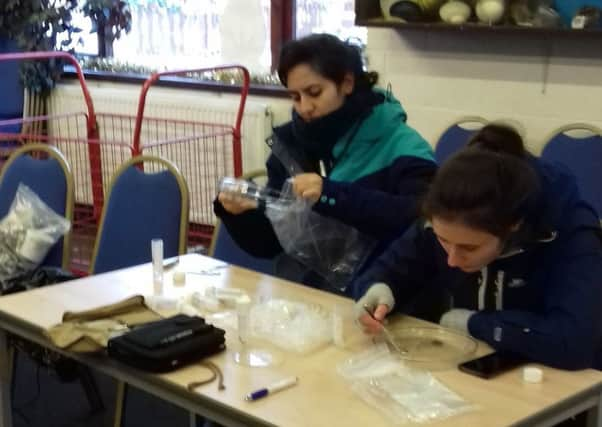View from the Zoo: Tests will help stop spread of avian malaria


Despite the snow, several adult mosquitoes were found hiding behind doors and in damp areas.
The research is part of a larger study which is being conducted at several zoos across the country. The study investigates the spread of avian malaria. This is a potentially deadly disease for birds and to which penguins are highly susceptible.
Advertisement
Hide AdAdvertisement
Hide AdMosquitoes are the main vector of avian malaria however wild birds can also carry and spread the disease.
The team from University of Liverpool have been collecting samples of mosquitoes throughout the past year and have classified and recorded more than 400 individuals.
They came to us with an aspirator – a contraption which looks like a vacuum cleaner attached to a backpack, and is used to collect mosquitoes. It certainly wouldn’t look out of place on the set of Ghostbusters! They then visit the insides of the animal houses and suck up any living adult mosquitoes that they find.
The samples go back to the lab to be classified into species and to be genetically tested. In addition, the researchers set pheromone traps to collect breeding female mosquitoes.
Advertisement
Hide AdAdvertisement
Hide AdAnother type of sensor assesses the number of mosquitoes present in each area of the zoo to provide information about mosquito hotspots.
Information from the mosquito genetics are compared against bird genetics to establish the spread of avian malaria.
The results of the research will provide information about avian malaria genetics and help us to understand the spread of the disease. This will help zoos prevent future outbreaks and will ultimately save birds’ lives.